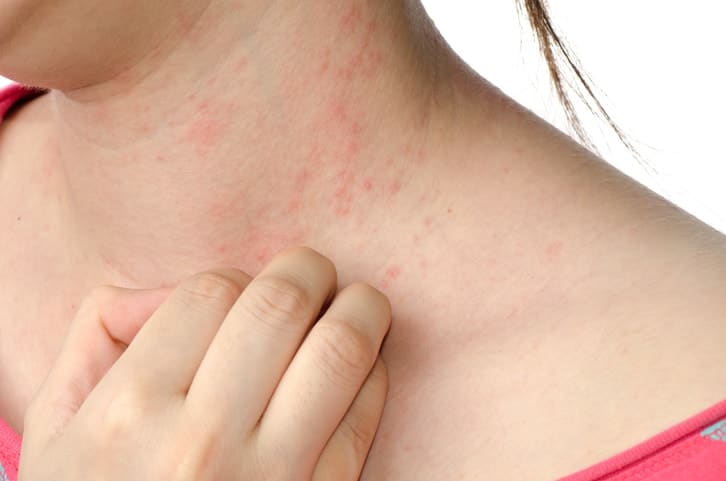Can Stress Affect My Eczema?
What is Eczema?
Eczema is a skin condition characterized by red, itchy, flaky, dry skin. It generally results from an overactive immune system that produces inflammation responses to environmental cues other people are not responsive to (or only respond to in milder ways.)
What Are the Symptoms of Eczema?
Eczema may come and go, and it can be asymptomatic for long periods of time between attacks. A rash behind the knees or on the arms is the most common symptom. However, the rash can appear virtually anywhere throughout the body.
This rash is usually dry and flaky, with peeling or redness. It may include bumps or fissures and might sometimes be itchy. Although some medications can help with eczema, it can often be controlled by being aware of environmental triggers and managing them proactively.
Can Stress Trigger Eczema to Become Worse?
The answer is yes. Although most eczema triggers are chemical in nature, emotional state does play a role. No one knows exactly why stress is a factor in occasionally producing eczema episodes. However, patients should endeavor to monitor and manage their stress levels.
Eczema is just one of many conditions that can “flare up” as a result of stress – especially intense and prolonged stress. In fact, it is not even the only skin condition to do so. If you are able to respond effectively to stress, you might become healthier overall.
No one fully understands how stress is related to eczema. Eczema itself can be the cause of some stress, with severe itching that may impede sleep and reduce quality of life. Working to reduce stress may help to make episodes of eczema less frequent.
What Are Some Other Triggers for Eczema?
Most eczema episodes are caused by chemical triggers and other environmental irritants. Patients may have reduced filaggrin, a protein responsible for maintaining skin’s uppermost protective barrier. As a result of this, the top layers of skin are much more likely to become inflamed.
Some of the most common eczema triggers include:
- Cigarette smoke
- Certain metals, particularly nickel
- Soaps, fragrances, and household cleaners
- Fabrics, especially wool and synthetics like polyester
- Commonplace antibacterial ointments like bacitracin
- Formaldehyde
One trigger many people need to be alert to, especially in the workplace, is isothiazolinones. This is an antibacterial agent that may be found in baby wipes, moistened hand wipes and other common personal cleaning products. Many eczema patients avoid this chemical entirely.
Luckily, many known eczema triggers are relatively uncommon. Once you are aware of which ones affect you, it is much easier to avoid them. However, stress is something everyone will run into now and then. The better you adjust to it, the easier life with eczema can be.
What Are Some Tips for Stress Relief?
- Get Plenty of Sleep: Sleep is one of the most important factors in stress management. In fact, having sufficient sleep will help you deal with everything else that might happen as a result of stress. Most adults should seek seven to eight hours of sleep a night on a consistent schedule.
- Take Time to Breathe: When someone is angry, anxious, or upset, breathing tends to be affected very quickly. When you consciously take long, deep breaths to the count of ten, it can help you maintain your calm. It also reduces heart rate and blood pressure.
- Exercise: Although many hobbies only provide a temporary distraction from stress, regular exercise has the potential to change things for the better long-term. Over time, it helps with the balance of stress hormones, respiration, and other issues.
To find out more, contact Florida Academic Dermatology Center.
